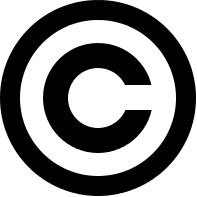 This aspect of Chicago law belies the widely held misconception that theft is associated with only tangible things. Copyright theft or intellectual property infringements have attracted the attention of the Chicago legislature because they are a key component of the trade relations with major partners such as China. The economic impacts can be quite significant. The current law protects a range of potentially valuable items such as:
This aspect of Chicago law belies the widely held misconception that theft is associated with only tangible things. Copyright theft or intellectual property infringements have attracted the attention of the Chicago legislature because they are a key component of the trade relations with major partners such as China. The economic impacts can be quite significant. The current law protects a range of potentially valuable items such as:
- Mathematical Formulas
- Practice Notes
- Process Maps
- Actual Designs
- Instruments of Work
- Patterns
- General Information lists
In determining what is intellectual property, the courts will consider how accessible the item is to the public. If it already in the public domain, then it is inconceivable that a charge will be sustained in a Chicago. There are cases where the court will require a positive action from the victim to protect their intellectual property, otherwise it moves into the unprotected public domain. The acquisition of this property by dishonest means is a key ingredient of the crime but it is possible to capture even those who are accidental perpetrators.
Tackling Widespread and Insidious Copyright Theft
The first or low level violation can be a misdemeanor or felony depending on the circumstances of the case. For example, the theft of trade secrets can lead to a term of custody in state prison not exceeding a single year upon conviction. Those who assist the offender by either receiving the proceeds of the crime or concealing them in any way, will also be liable and punishable. Likewise, buying or acquiring property that you know (or should have known in reasonable circumstances) is stolen intellectual property, will make you liable for prosecution.
The Illinois Penal Code makes provisions for prosecuting those who gain unauthorized access to computers as well and defines the relevant reporting protocols. This is a recent addition that takes into account the changing nature of intellectual property as well as the need for the law to catch up with the latest developments. The law will intersect with the other provisions that are meant to protect the public from the insidious incidence of Internet Fraud. However, intellectual property theft should be distinguished from other forms of internet fraud.
The more appropriate prosecution will occur if the defendant uses the internet in order to gain access to information that they would otherwise not have permission to access. They can use any tool in the internet category such as email or even a software program that infiltrates government department databases. The prosecutor will also be interested in how the information obtained was used. There are certain types of usage that will attract additional charges, which could be even more serious than copyright theft. For example, if you use the information to harass victims of crime then you could be held in contempt of the court.
Complex Issues for a Defense Attorney
The first step is establishing who actually owns the intellectual property and whether they have made a formal claim on it. You cannot steal that which does not belong to anyone or anything. The other complexity is that there may be many parties that are part of the infringement process to the extent that it becomes difficult to apportion culpability accurately. These are not cases in which the legal procedure of joint enterprise prosecutions can be easily used, not least because they often fall closer to the civil side of the law.
Where the commission of the crime crosses borders, it might prove to be a challenge to get certain jurisdictions to cooperate with the prosecution. Notably, China has been specifically accused of not taking intellectual property theft seriously enough. The case law on the management of all types of prosecutions is extensive regardless of the complexity of the issues at stake. If you need an expert lawyer who will take care of your case. Call David Freidberg, Attorney at Law at 312-560-7100 now.
 Chicago Criminal Lawyer Blog
Chicago Criminal Lawyer Blog


